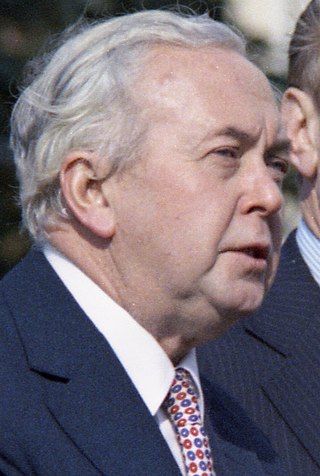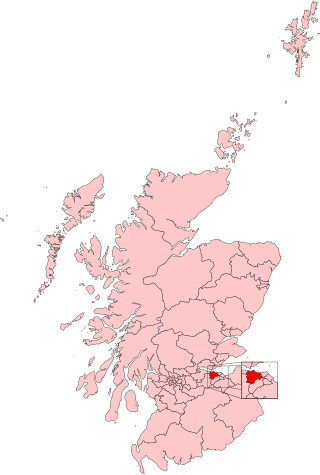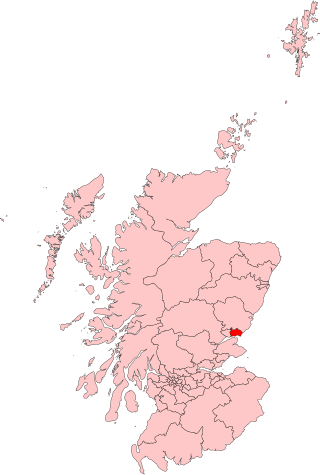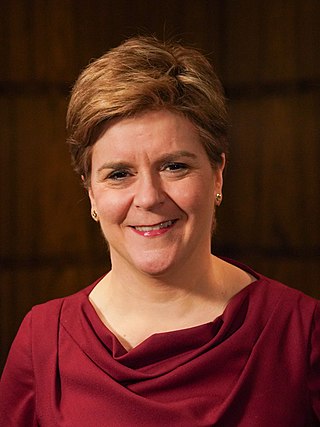
The politics of the United Kingdom functions within a constitutional monarchy where executive power is delegated by legislation and social conventions to a unitary parliamentary democracy. From this a hereditary monarch, currently King Charles III, serves as head of state while the Prime Minister of the United Kingdom, currently Rishi Sunak since 2022, serves as the elected head of government.

The 1970 United Kingdom general election was held on Thursday 18 June 1970. It resulted in a surprise victory for the Conservative Party under leader Edward Heath, which defeated the governing Labour Party under Prime Minister Harold Wilson. The Liberal Party, under its new leader Jeremy Thorpe, lost half its seats. The Conservatives, including the Ulster Unionist Party (UUP), secured a majority of 30 seats. This general election was the first in which people could vote from the age of 18, after passage of the Representation of the People Act the previous year, and the first UK election where party, and not just candidate names were allowed to be put on the ballots.

The politics of Scotland operate within the constitution of the United Kingdom, of which Scotland is a country. Scotland is a democracy, being represented in both the Scottish Parliament and the Parliament of the United Kingdom since the Scotland Act 1998. Most executive power is exercised by the Scottish Government, led by the First Minister of Scotland, the head of government in a multi-party system. The judiciary of Scotland, dealing with Scots law, is independent of the legislature and the Scottish Government. Scots law is primarily determined by the Scottish Parliament. The Scottish Government shares some executive powers with the Scotland Office, a British government department led by the Secretary of State for Scotland.

The February 1974 United Kingdom general election was held on Thursday 28 February 1974. The Labour Party, led by Leader of the Opposition and former Prime Minister Harold Wilson, gained 14 seats but was seventeen short of an overall majority. The Conservative Party, led by incumbent Prime Minister Edward Heath, lost 28 seats. That resulted in a hung parliament, the first since 1929. Heath sought a coalition with the Liberals, but the two parties failed to come to an agreement and so Wilson became Prime Minister for a second time, his first with a minority government. Wilson called another early election in September, which was held in October and resulted in a Labour majority. The February election was also the first general election to be held with the United Kingdom as a member state of the European Communities (EC), which was widely known as the "Common Market".

The October 1974 United Kingdom general election took place on Thursday 10 October 1974 to elect 635 members of the British House of Commons. It was the second general election held that year; the first year that two general elections were held in the same year since 1910; and the first time that two general elections were held less than a year apart from each other since the 1923 and 1924 elections, which took place 10 months apart. The election resulted in the Labour Party, led by Prime Minister Harold Wilson, winning a bare majority of three seats. That enabled the remainder of the Labour government to take place, but it saw a gradual loss of its majority.

The 1922 United Kingdom general election was held on Wednesday 15 November 1922. It was won by the Conservative Party, led by Prime Minister Andrew Bonar Law, which gained an overall majority over the Labour Party, led by J. R. Clynes, and a divided Liberal Party.

Unionism in Scotland is a political movement which favours the continuation of the political union between Scotland and the other countries of the United Kingdom, and hence is opposed to Scottish independence. Scotland is one of four countries of the United Kingdom which has its own devolved government and Scottish Parliament, as well as representation in the UK Parliament. There are many strands of political Unionism in Scotland, some of which have ties to Unionism and Loyalism in Northern Ireland. The two main political parties in the UK — the Conservatives and Labour — both support Scotland remaining part of the UK.

Edinburgh South is a constituency of the House of Commons of the UK Parliament created in 1885. The constituency has been held by Scottish Labour since 1987, being represented by Ian Murray since 2010. Murray was the only Labour MP in Scotland to retain his seat at the 2015 and 2019 general elections and this is one of only three seats never held by the Scottish National Party (SNP).

Edinburgh West is a burgh constituency of the House of Commons of the Parliament of the United Kingdom, first contested at the 1885 general election.

Dundee East is a constituency of the House of Commons of the Parliament of the United Kingdom. Created for the 1950 general election, it elects one Member of Parliament (MP) by the first-past-the-post voting system.

Aberdeen South is a burgh constituency of the House of Commons of the Parliament of the United Kingdom and it elects one Member of Parliament (MP) by the first-past-the-post system of election.

The 2005 United Kingdom general election was held on Thursday 5 May 2005, to elect 646 members to the House of Commons. The governing Labour Party, led by Tony Blair, won its third consecutive victory, with Blair becoming the second Labour leader after Harold Wilson to form three majority governments. However, its majority fell to 66 seats; the majority it won four years earlier had been of 167 seats. This was the first time the Labour Party had won a third consecutive election, and as of 2024 remains the party's most recent general election victory.

Scottish Labour, officially the Scottish Labour Party, is the part of the UK Labour Party active in Scotland. Ideologically social democratic and unionist, it holds 22 of 129 seats in the Scottish Parliament and 2 of 59 Scottish seats in the House of Commons. It is represented by 262 of the 1,227 local councillors across Scotland. The Scottish Labour party has no separate Chief Whip at Westminster.

The Scottish Conservative & Unionist Party is part of the UK Conservative Party active in Scotland. It is a centre right party. The party holds 7 out of the 59 Scottish seats in the House of Commons and 31 of the 129 seats in the Scottish Parliament. It has 209 local councillors of 1,227.

General elections were held in India between 17 and 21 February 1967 to elect 520 of the 523 members of the fourth Lok Sabha, an increase of 15 from the previous session of Lok Sabha. Elections to State Assemblies were also held simultaneously, the last general election to do so.

The 2021 Scottish Parliament election took place on 6 May 2021, under the provisions of the Scotland Act 1998. All 129 Members of the Scottish Parliament were elected in the sixth election since the parliament was re-established in 1999. The election was held alongside the Senedd election, English local elections, London Assembly and mayoral election and the Hartlepool by-election.

A general election was held in the United Kingdom on 5 May 2005 and all 59 seats in Scotland were contested. This was the first election to occur under the new boundaries which reduced the number of Scottish seats from 72 to 59. Previously, Scotland had a greater number of MPs per person than the rest of the UK to compensate for its distinct political nature and distance from Westminster. With the introduction of the Scottish Parliament, Scottish constituencies were brought into line with those found in the rest of the UK, so that they had similar electorates.
A landslide victory is an election result in which the victorious candidate or party wins by an overwhelming margin. The term became popular in the 1800s to describe a victory in which the opposition is "buried", similar to the way in which a geological landslide buries whatever is in its path. A landslide victory is the opposite of an electoral wipeout; a party which wins in a landslide typically inflicts a wipeout on its opposition.

The 2015 United Kingdom general election was held on Thursday 7 May 2015 to elect 650 Members of Parliament to the House of Commons. It was the only general election held under the rules of the Fixed-term Parliaments Act 2011 and was the last general election to be held before the United Kingdom would vote to end its membership of the European Union (EU). Local elections took place in most areas of England on the same day.


















